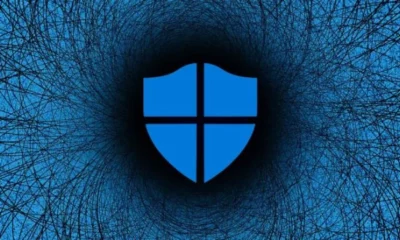Tech
Which OS is Safer: Linux or Windows?

Cybersafety is one of the most critical concerns in modern society. In a digitalized world, computers and other devices contain tons of sensitive information that users do care to protect. They install different antivirus software, use private modes and disable cookies. There are a lot of aspects of cybersecurity you should pay attention to. And one of them is the security and stability of the OS installed on your computer. In this article, we are going to compare Linux vs Windows security to help you make an optimal choice.
First of all, we’d like to say that there is no system that guarantees 100% security in any situation. Many people consider Linux as a too complex OS used only by software developers even though they have no experience with it. So, let’s find out the answer to the question “Is Linux more secure than Windows?”
How to Ensure the Highest OS Security?
Before we start comparing Linux security vs Windows, it’s necessary to state that regardless of the operating system you are working on, it is essential to protect yourself with other measures.
One of the most common measures is using a VPN for Linux and Windows. VPN is an app that you install on your desktop and mobile device. Apart from obvious functions like hiding your location, VPN software for Linux and Windows also plays a crucial role in cybersecurity. It protects the data transmitted from your device via a secure encryption channel. To find the most suitable Linux VPN and test out the features, you can use a free trial before you pay for this software. We recommend using such software from reputable providers like VeePN to be confident in your protection.
More About Windows Security
The more popular, the more insecure
Nowadays, 77% of computers operate on Windows compared with Linux having less than 2% of computers. From this, many users can make a conclusion that Windows is more secure. However, due to the recent security improvements, we can see that everything is not so ideal on Windows.
The more popular the OS is, the more attempts to attack it are made. Recently, Windows has made substantial enhancements to the previous weak spots. They have introduced their own antivirus, made improvements related to firewalls, restricted different programs from accessing the memory of the operating system. Windows has a lion’s share of the market and this pertains to the threats, too. When it comes to Linux OS security, the amount of malware is significantly smaller.
Downloading software
Many users also think that it is much easier to download malware on your PC or laptop. Yet, there are some measures that protect users from malicious software. It is much more complicated than double-clicking. There are also options that help ensure that the downloaded file comes from a reliable source.
However, the security level is not as high as could be. It is still possible for viruses to get into your computer. Windows 10 sends regular warnings if you try to run a recently installed program on your computer.
It is also much easier to install software from almost any source on Windows. This is a huge risk for security if you install an unlicensed program from an unreliable website.
More about Linux security
Installing software
When it comes to installing different software, Linux is using something like package managers. To make a long story short, such a manager is in charge of downloading the needed programs from reliable sources (repositories).
As a rule, the community manages the repositories, and there is a long process before the package gets approved and accepted. It is also convenient for users as they can be 100% confident that a new software they install won’t cause any damage to their computers.
Microsoft tried to deal with this problem and introduced Windows Store, but it hadn’t brought them to the desired outcome.
Open-source platform
Linux is an open-source OS. It means that its source code can be accessed and modified. First, it may seem like a potential threat to cybersecurity when any person can see the code. Yet, the advantages more than pay off the risks. It allows programmers and researchers to detect and fix bugs and other errors in the code. This makes the Linux code more and more secure each day. On the other hand, Windows is owned by a private company and no matter how many qualified engineers they employ, improving the code will never be as easy as on Linux.
Updates
For Linux, the updating process is much more convenient for users. The package managers allow handling this process in just a few clicks. You also don’t need to restart the computer when it happens. When it comes to Windows, you update only the system and some other programs. All the rest should be handled by the users themselves. Such an inconvenient process leads to the situation when users have an outdated version of the system. And this is one of the biggest security risks for users. All the weaknesses of the system can be easily used by cybercriminals.
To wrap up
Beyond any doubt, the security of the OS is an important point to protect yourself from viruses, malware, and hacking attacks. But what matters, even more, is the actions of the users. Windows can become as secure as Linux is if you use it properly.
So when it comes to the question of how much safer is Linux than Windows, the right answer is, it depends on how you use it.
You should rely on the system, but at the same time, take additional steps to protect yourself from cyber threats.
-

 Sports4 weeks ago
Sports4 weeks agoFIFA Club World Cup 2025: Complete List of Qualified Teams and Groups
-

 Sports3 weeks ago
Sports3 weeks agoAl Ahly vs Inter Miami, 2025 FIFA Club World Cup – Preview, Prediction, Predicted Lineups and How to Watch
-
Health2 weeks ago
Back to Roots: Ayurveda Offers Natural Cure for Common Hair Woes
-

 Tech2 weeks ago
Tech2 weeks agoFrom Soil to Silicon: The Rise of Agriculture AI and Drone Innovations in 2025
-

 Sports3 weeks ago
Sports3 weeks agoFIVB Men’s Volleyball Nations League 2025: Full Schedule, Fixtures, Format, Teams, Pools and How to Watch
-

 Startup3 weeks ago
Startup3 weeks agoHow Instagram Is Driving Global Social Media Marketing Trends
-

 Television4 weeks ago
Television4 weeks agoTribeca Festival 2025: Date, Time, Lineups, Performances, Tickets and How to Watch
-

 Sports3 weeks ago
Sports3 weeks agoWorld Judo Championships 2025: Full Schedule, Date, Time, Key Athletes and How to Watch



















